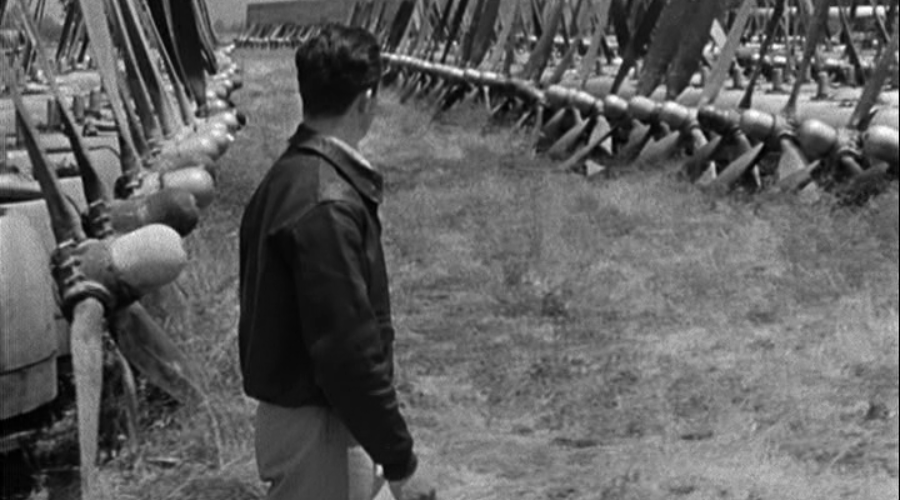
Like most movies out of classic Hollywood, The Best Years of Our Lives (1946) was a group effort. The idea came from Samuel Goldwyn, the original treatment was a narrative poem by McKinley Kantor titled Glory for Me, and the film itself was directed by William Wyler. The result is a closely-observed and sensitive portrayal of three veterans of World War II and the families who have been waiting for them. The Best Years of Our Lives is both human and humane, a far cry from the jingoistic entertainments offered by the likes of John Wayne. The returning veterans come from three different strata of society and each suffers from his own wounds—physical, in the case of double-amputee Homer Parrish (played by veteran Harold Russell), psychological, in the case of Fred Derry (Dana Andrews), or emotional, in the case of Al Stephenson (Fredric March).
The narrative is unhurried, following each veteran as he deals with the emotional toll of returning to a civilian world of which he no longer feels a part. Though there is much heightened emotion, there are no real villains here, unless it is the loudmouth Derry punches at one point. Even Derry’s profligate and unfaithful wife Marie (Virginia Mayo) is drawn with sensitivity and understanding. A highlight of the cast is Myrna Loy as Stephenson’s longsuffering wife Milly, who conveys every pain of seeing her husband’s emotional instability and alcoholism without devolving into melodrama. Thus, the significance of this movie lies in its commitment to honesty and humanity; the overriding theme is the need to love each other truly and allow others to love in return. — Nathanael Booth (2022)
.
- Directed by: William Wyler
- Produced by: Samuel Goldwyn
Lester Koenig - Written by: Robert E. Sherwood
MacKinlay Kantor - Music by: Hugo Friedhofer
- Cinematography by: Greg Toland
- Editing by: Daniel Mandell
- Release Date: 1946
- Running Time: 170
- Language: English
Arts & Faith Lists:
2020 Top 100 — #48